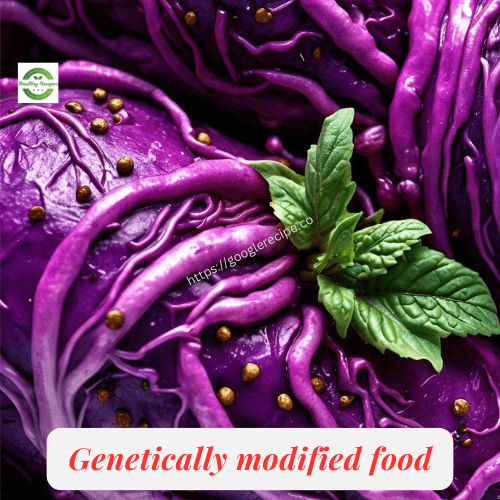How to reduce abdominal fat?
Understanding Weight Loss: Science, Myths, and Facts
How to reduce abdominal fat? In the realm of health and wellness, few topics garner as much attention and confusion as weight loss. It’s a subject that dominates New Year’s resolutions worldwide and fuels an entire industry of products, diets, and advice.
With countless articles and rumors circulating, it’s challenging to discern fact from fiction. So, let’s delve into the science behind weight loss, debunk some myths, and uncover practical strategies for achieving healthy weight management.
The Calorie Equation: Balancing Intake and Expenditure
Imagine your body as a bank account: calories you consume are deposits, and calories you burn through activity are withdrawals. To lose weight effectively, you need a calorie deficit—where you expend more calories than you consume. This deficit forces your body to tap into stored fat for energy, thereby reducing overall weight.
Where Calories Come From
Calories are units of energy found in food and beverages (excluding water). Different foods affect your body’s calorie balance differently. The process of digesting and metabolizing food also burns calories, known as the Thermic Effect of Food (TEF). Foods high in protein and fiber, like lean meats and vegetables, require more energy to digest than processed foods like oils or sugars.
Basics of Metabolism: BMR and More
Your Basal Metabolic Rate (BMR) determines how many calories your body burns at rest to maintain basic physiological functions like breathing and circulation. Factors like age, weight, height, and muscle mass influence BMR. Understanding your BMR helps tailor your calorie intake for weight loss.
Exercise: More Than Just Burning Calories
While cutting calories is essential, exercise plays a crucial role beyond calorie burning. It improves cardiovascular health, boosts metabolism, and helps preserve lean muscle mass during weight loss. Combining diet control with regular exercise—whether cardio, strength training, or flexibility exercises—enhances overall health and aids sustainable weight management.
The Role of Macronutrients: Finding Balance
The composition of your diet—proteins, carbohydrates, and fats—matters for weight loss and overall health. While popular diets like keto or low-carb may offer short-term results, research consistently shows that long-term success hinges on maintaining a balanced diet that includes all three macronutrients within recommended ranges.
- Carbohydrates: Essential for energy; focus on whole grains, fruits, and vegetables over refined carbs.
- Proteins: Aid in muscle repair and satiety, choose lean sources like poultry, fish, and legumes.
- Fats: Provide energy, support hormone function, and opt for unsaturated fats found in nuts, seeds, and olive oil.
What to Eat and What to Avoid
Healthy weight loss involves mindful eating. Prioritize nutrient-dense foods that keep you full longer, like whole grains, lean proteins, and vegetables. Avoid or limit refined sugars, processed foods, and trans fats, which contribute to weight gain and health complications.
Sustainable Lifestyle Changes
Achieving and maintaining a healthy weight isn’t just about what you eat—it’s a holistic approach. Adequate sleep, stress management, and regular physical activity are crucial. Building healthy habits over time ensures sustainable results and enhances overall well-being.
Conclusion
In summary, weight loss is achievable through a balanced approach of calorie management, nutritious eating, and regular exercise. Beware of quick-fix diets or products promising unrealistic results. Instead, focus on long-term lifestyle changes that support your health and fitness goals.
By understanding the science behind weight loss and adopting evidence-based strategies, you can embark on a journey towards a healthier, more fulfilling life.
Certainly! Here are some FAQs related to the topic of weight loss and diet control:
1. What is the most effective way to lose weight? The most effective way to lose weight is by creating a calorie deficit, which means consuming fewer calories than you burn through daily activities and exercise. This can be achieved through a combination of diet control and regular physical activity.
2. What diet is best for weight loss? There is no one-size-fits-all diet for weight loss. However, diets that focus on whole, nutrient-dense foods such as fruits, vegetables, lean proteins, and whole grains tend to be effective. It’s important to choose a diet that you can sustain in the long term and that meets your individual nutritional needs.
3. Do I obligation to exercise to lose weight? While it’s possible to lose weight through diet alone by creating a calorie deficit, exercise plays a crucial role in maintaining muscle mass, improving overall health, and boosting metabolism. Combining both diet and exercise typically yields the best results for sustainable weight loss.
4. What foods should I avoid when trying to lose weight? It’s advisable to limit or avoid foods high in added sugars, refined carbohydrates (like white bread and pasta), and unhealthy fats (trans fats and excessive saturated fats). Also, minimizing consumption of processed and fast foods can support weight loss efforts.
5. How much weight can I lose in a healthy way each week? A healthy amount of weight loss is commonly considered to be 1-2 pounds (0.5–1 kg) per week. Rapid weight loss can be unsustainable and may lead to muscle loss and nutrient deficiencies.
6. Are there specific foods that promote weight loss? Certain foods, such as lean proteins (like chicken, fish, and tofu), whole grains (like brown rice and quinoa), fruits, vegetables, and foods rich in fiber (like beans and lentils), can help promote feelings of fullness and support weight loss goals when included in a balanced diet.
7. How important is portion control for weight loss? Portion control is critical for managing calorie intake. Eating smaller portions can help prevent overeating and ensure that you are consuming an appropriate amount of calories for weight loss while still getting essential nutrients.
8. Is it okay to skip meals to lose weight? Skipping meals is not recommended for weight loss as it can lead to overeating later in the day, lower energy levels, and potential nutrient deficiencies. It’s better to eat regular, balanced meals and snacks throughout the day to maintain steady energy levels and support metabolism.
9. What role does hydration play in weight loss? Staying hydrated is important for overall health and can support weight loss efforts by helping to control appetite and prevent overeating. Drinking water before meals may also help you feel fuller and consume fewer calories.
10. How do I maintain weight loss after achieving my goal? To maintain weight loss, continue to follow a balanced diet that includes a variety of foods, practice portion control, engage in regular physical activity, manage stress levels, and prioritize adequate sleep. Maintaining a healthy weight over the long run requires consistency in practices.


